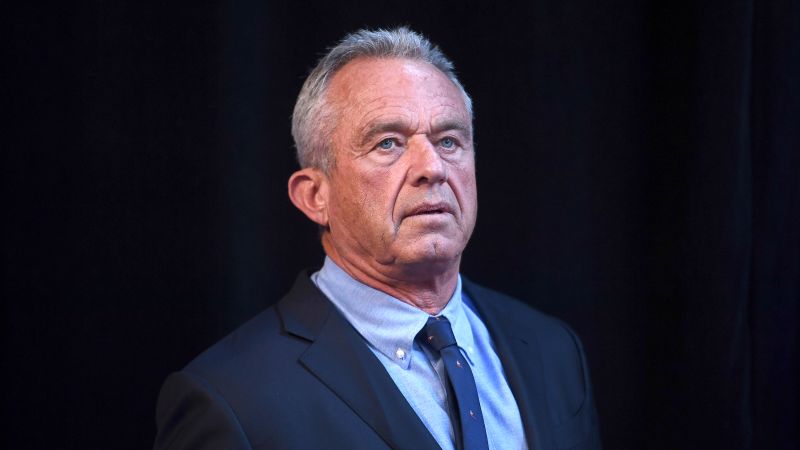Independent presidential candidate Robert F. Kennedy Jr. faced backlash from anti-abortion advocates, including his own campaign, after expressing opposition to any government limits on abortion access. However, in a social media post on Friday, Kennedy clarified his stance, saying he believes abortion should be legal up until a certain number of weeks and restricted in the final months of pregnancy. He highlighted an emerging consensus that supports legal abortion up until a certain point and appropriate restrictions thereafter, such as when the baby is viable outside the womb, similar to the guidelines set by Roe v. Wade.
Kennedy’s initial comments in a podcast where he opposed any government limits on abortion access, even close to the delivery date, led to criticism from anti-abortion groups such as Susan B. Anthony Pro-Life America, who deemed him unacceptable to pro-life voters. Kennedy’s campaign adviser, Angela Stanton King, who helped with outreach to Black voters and advised on criminal justice and abortion policies, also criticized his position. However, after speaking with Kennedy, Stanton King announced that he had agreed to clarify his stance on abortion, indicating a willingness to adjust his views based on feedback.
This incident is not the first time Kennedy has had to walk back his position on government limits on abortion access. Previously, he had expressed support for a three-month federal abortion restriction, only for his campaign to quickly retract that statement. Kennedy’s recent comments and subsequent revisions highlight the complexities and controversies surrounding abortion policy in America, where opinions are often polarized along political and ideological lines. The evolving nature of Kennedy’s stance on abortion also reflects the challenges faced by politicians in navigating sensitive and divisive issues while trying to appeal to a broad range of voters.
Kennedy’s stance on abortion aligns with a growing consensus that supports legal abortion up until a certain point in pregnancy and imposes restrictions thereafter. By advocating for restrictions in the final months of pregnancy based on viability outside the womb, Kennedy aims to strike a balance between the rights of women to access safe and legal abortion and the protection of unborn life. While abortion remains a profoundly divisive issue in American politics, Kennedy’s attempt to find common ground and articulate a nuanced position demonstrates a willingness to engage with differing perspectives and values.
The controversy surrounding Kennedy’s abortion stance highlights the competing political pressures faced by candidates running for public office, particularly on polarizing issues such as abortion. Anti-abortion advocates are quick to condemn any deviation from their stance, while pro-choice supporters emphasize the importance of protecting reproductive rights. Kennedy’s ability to navigate these pressures and adjust his position in response to feedback underscores the complex dynamics of election campaigns and the need for candidates to carefully communicate their views on contentious issues to build a broad base of support.
In conclusion, Robert F. Kennedy Jr.’s recent comments and subsequent clarification on government limits on abortion access underscore the challenges faced by political candidates in navigating contentious issues and appealing to diverse voter constituencies. Kennedy’s evolving stance on abortion reflects the complex and polarized nature of abortion politics in America, where finding common ground is often difficult. While his attempts to strike a balance between differing views on abortion may help build bridges with various segments of the electorate, they also expose him to criticism and scrutiny from both sides of the debate. Ultimately, Kennedy’s handling of the abortion issue highlights the delicate balancing act that candidates must perform to address sensitive topics while staying true to their principles and values.


